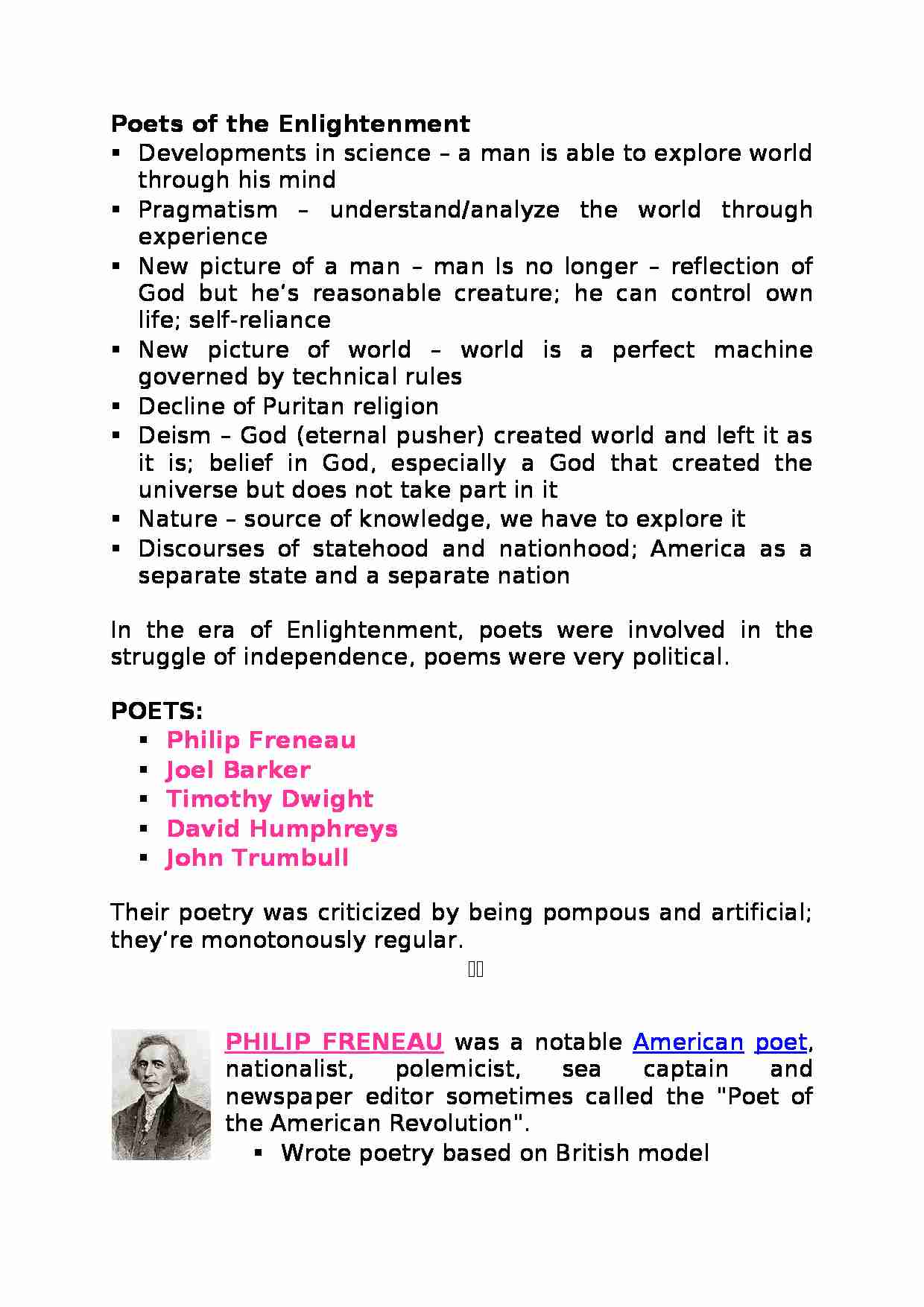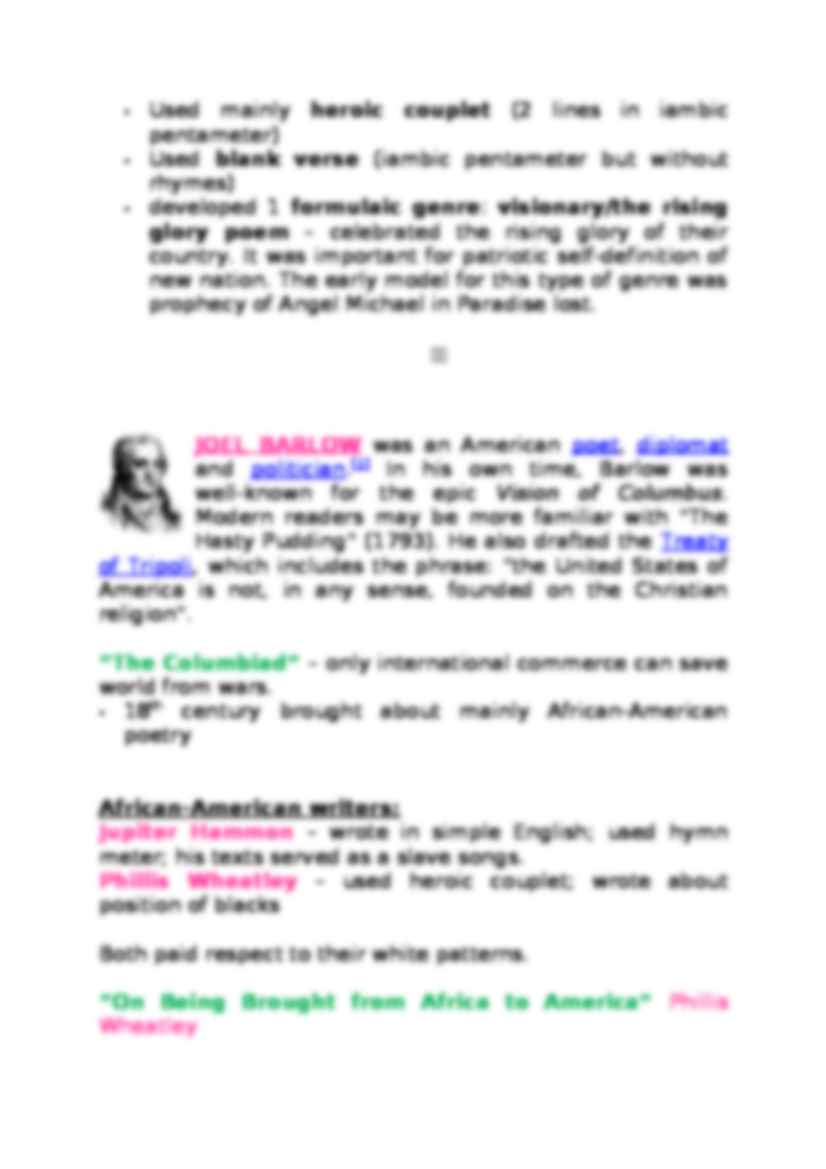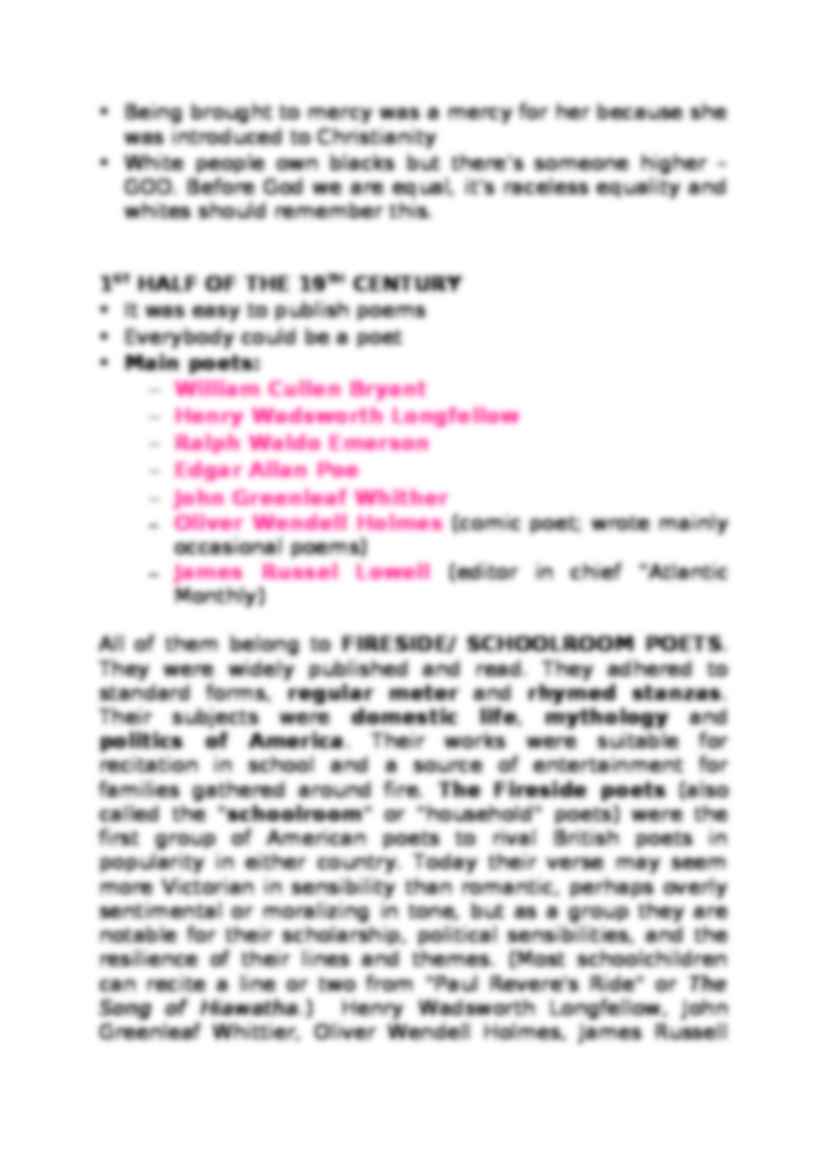To tylko jedna z 9 stron tej notatki. Zaloguj się aby zobaczyć ten dokument.
Zobacz
całą notatkę



Poets of the Enlightenment
Developments in science - a man is able to explore world through his mind
Pragmatism - understand/analyze the world through experience
New picture of a man - man Is no longer - reflection of God but he's reasonable creature; he can control own life; self-reliance
New picture of world - world is a perfect machine governed by technical rules
Decline of Puritan religion
Deism - God (eternal pusher) created world and left it as it is; belief in God, especially a God that created the universe but does not take part in it
Nature - source of knowledge, we have to explore it
Discourses of statehood and nationhood; America as a separate state and a separate nation
In the era of Enlightenment, poets were involved in the struggle of independence, poems were very political.
Poets:
Philip Freneau
Joel Barker
Timothy Dwight
David Humphreys
John Trumbull
Their poetry was criticized by being pompous and artificial; they're monotonously regular.
Philip Freneau was a notable American poet, nationalist, polemicist, sea captain and newspaper editor sometimes called the "Poet of the American Revolution".
Wrote poetry based on British model
Used mainly heroic couplet (2 lines in iambic pentameter)
Used blank verse (iambic pentameter but without rhymes)
developed 1 formulaic genre: visionary/the rising glory poem - celebrated the rising glory of their country. It was important for patriotic self-definition of new nation. The early model for this type of genre was prophecy of Angel Michael in Paradise lost.
Joel BARLOW was an American poet, diplomat and politician.[1] In his own time, Barlow was well-known for the epic Vision of Columbus. Modern readers may be more familiar with "The Hasty Pudding" (1793). He also drafted the Treaty of Tripoli, which includes the phrase: "the United States of America is not, in any sense, founded on the Christian religion".
“The Columbiad” - only international commerce can save world from wars.
18th century brought about mainly African-American poetry
African-American writers:
Jupiter Hammon - wrote in simple English; used hymn meter; his texts served as a slave songs.
Phillis Wheatley - used heroic couplet; wrote about position of blacks
Both paid respect to their white patterns.
“On Being Brought from Africa to America” Phillis Wheatley
Being brought to mercy was a mercy for her because she was introduced to Christianity
(…)
… own blacks but there's someone higher - GOD. Before God we are equal, it's raceless equality and whites should remember this.
1st half of the 19th century
It was easy to publish poems
Everybody could be a poet
Main poets:
William Cullen Bryant
Henry Wadsworth Longfellow
Ralph Waldo Emerson
Edgar Allan Poe
John Greenleaf Whither
Oliver Wendell Holmes (comic poet; wrote mainly occasional poems)
James…
… Scottish poet, Robert Burns.
Quaker; journalist
Active among abolitionists
Political poems
Wrote about the inhabitance of New England
“Snow-Bound”
William Wordsworth introduced the simplicity of folk ballad into British literature
simplified lg of literature
sudden break in classical literature
wrote “Daffodils”
Edgar Allan Poe (1809-49) a US writer of short stories and poems. His best remembered works…
… the peak of his career, Longfellow's popularity rivaled Tennyson's in England as well as in America, and he was a noted translator and scholar in several languages--in fact, he was the first American poet to be honored with a bust in Westminster Abbey's Poet's Corner. Hiawatha itself draws not only on Native American languages for its rhythmic underpinning, but also echoes the Kalevala, a Finnish…
… many of his stories. Southener
Critic, journalist
In his Whiting there's no Southern landscape or heroes
Uses Southern grotesque (takes place in American South)
Lack of antebellum strategies
Relies on supernatural events to guide the plot
Wanted to be a professional man of letter so to be universal
Preoccupied with death, morality
Idealized women (presents mainly dead corpses of women)
Doesn't believe…
... zobacz całą notatkę






Komentarze użytkowników (0)